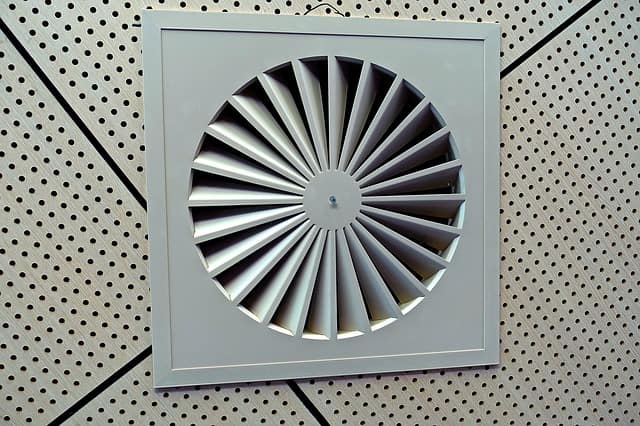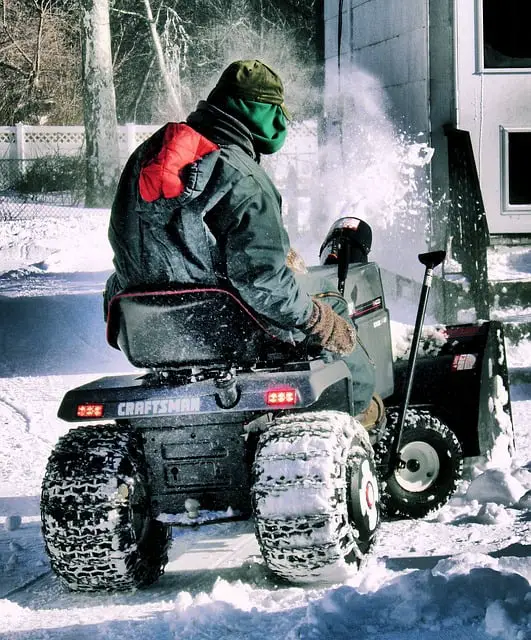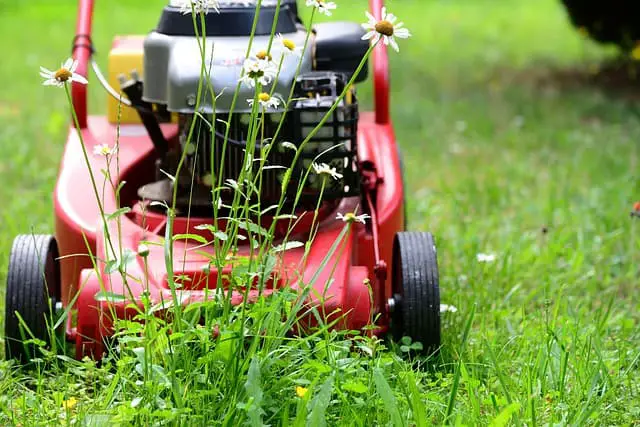If you are interested in buying a new snowblower, you’ll be happy to know that most snowblowers on the market are self-propelled. Snowblowers are designed to be safe and easy for nearly anyone to operate, that way people won’t have difficulty when they need to clear a pile of snow.
It’s important to know about a snowblower’s features before you invest in one. If you’re interested in learning more about self-propelled snowblowers, you’ve come to the right page. Today, we’re going to discuss whether or not snow blowers are self-propelled and everything else you should know. Keep reading to learn more.
Are snow blowers self-propelled?
Nearly every modern snowblower is self-propelled, no matter which type you are looking at buying. This means that the operator will be in control, while the snowblower takes care of the snow removal.
While you will still be required to push and steer the snowblower, the machine will take care of lifting and throwing the snow. This creates a lot less work for the person operating it.
Are electric snow blowers self-propelled?
Most electric snow blowers and electric snow shovels are self-propelled as well. These machines are becoming more popular with people because they are lightweight and easy for nearly anyone to maneuver.
While these machines are much smaller, they don’t lack the features that come with larger snow blowers. Many electric snow blowers even come equipped with power steering to make the job easier.
What is the best self-propelled snow blower?
While there are many great self-propelled snow blowers on the market, a fan favorite seems to be Cub Cadet 2X snow blowers. This snowblower is very easy to use with a convenient trigger function that many people are able to master on their first attempt.
A lot of people prefer the Cub Cadet 2X compared to other self-propelled snowblowers because it takes very little effort to maneuver. This snowblower even allows for single-hand operation.
Should you use a self-propelled snowblower in wet snow?
If the snow is wet and soggy, it’s not recommended to use a snowblower in it. This is because wet snow can easily clog many types of snowblowers.
It is recommended to invest in a heavyweight snowblower if you live in a climate that gets a lot of wet snow in the winter because these machines can break up the heavier snow easily. However, if wet snow only happens occasionally, you may be better off using a shovel to clear it this time.
Are self-propelled snowblowers worth buying?
If you live in an area that gets a lot of snow in the wintertime, then you are going to need to find a way to clear yourself a path to leave the house. If you have a small driveway, you may be able to get away with using a snow shovel.
However, shoveling the snow yourself is a big job if you have a long driveway. For this reason, you could benefit greatly from purchasing a self-propelled snowblower.
Are self-propelled snowblowers preferred for deep snow?
After a heavy snowfall, many homeowners are happy that they have a self-propelled snowblower to get themselves out. With deep snow, it’s recommended to use a snowblower at full speed while making a slow forward motion.
This allows people to use their self-propelled snowblower to clear smaller bits of snow at a time. It’s important to position the machine in a way so it will only grab a bit of snow at a time and doesn’t get clogged.
Are self-propelled battery snowblowers or self-propelled gas snowblowers better?
When comparing the two types of snowblowers, most people prefer the battery-operated snow blower. This is because they never have to worry about whether or not they have enough gas when there’s an unexpected snowfall.
Battery snowblowers also require a lot less maintenance, which helps the homeowner save on time and money throughout the season.
How many inches of snow can a self-propelled snowblower clear?
Most self-propelled snowblowers are designed to be able to clear up to 12 inches of snow at a time. However, 3-stage snow blowers are capable of clearing up to 18 inches of snow.
During storms and heavy snowfall where the snow is piling up high, it’s strongly recommended to clear some of the snow away before it hits a height of 12 inches.
Is a self-propelled single-stage snowblower decent?
Single-stage snowblowers are smaller and more lightweight than 2-stage and 3-stage snowblowers. This makes them a great choice for people on the petite side or those who have very little experience using a snowblower.
Since self-propelled single-stage snowblowers are a smaller design and weigh less, it’s easier for nearly anyone to maneuver. However, these machines are noyl good for light snowfalls.
How should I use a self-propelled snowblower on a driveway?
When you are using any type of snowblower on your driveway, it’s important that the nozzle is aimed away from areas where the snow could hit people or vehicles. For that reason, it’s best if you keep the nozzle pointed at the yard of your property.
It is recommended to work side by side if there is a strong wind, that way you can point the nozzle in the same direction that the wind is blowing.
How long does it take to clear a 2 car driveway using a self-propelled snowblower?
During a heavy snowstorm, if approximately 12 inches of snow has accumulated, it may take anywhere from 45 to 60 minutes to completely clear a 2 car driveway.
However, a bit of time can be adjusted for the type of snowblower you are using. An electric snowblower may take longer because it’s a smaller machine, whereas a heavy-duty 3-stage snowblower may clear the snow a lot faster.
What should I consider before investing in a snowblower?
With so many different types of snowblowers, it’s important that you spend money on the right one for your property. Some things you should consider are how often it snows, how heavy the snow is, the size of your driveway, and where you will store the snowblower.


